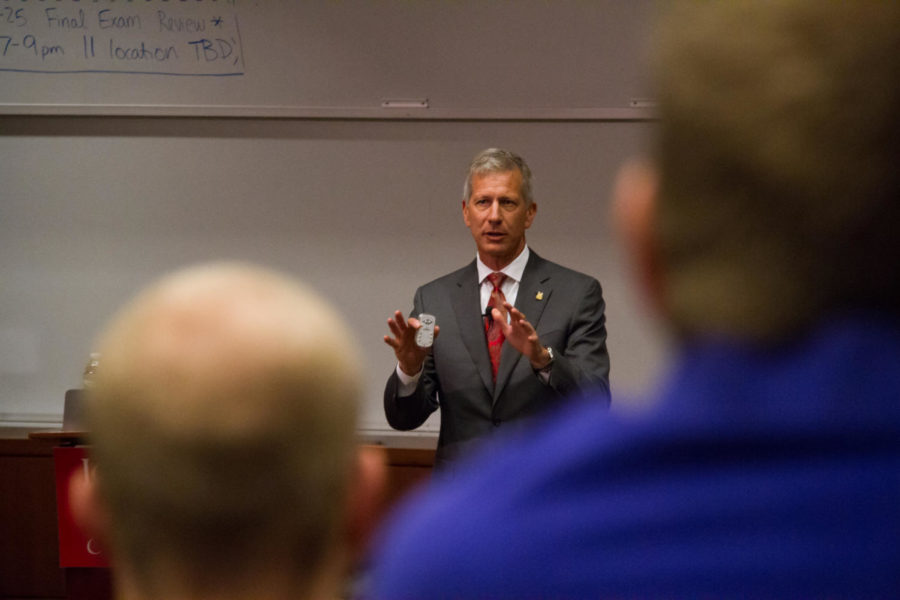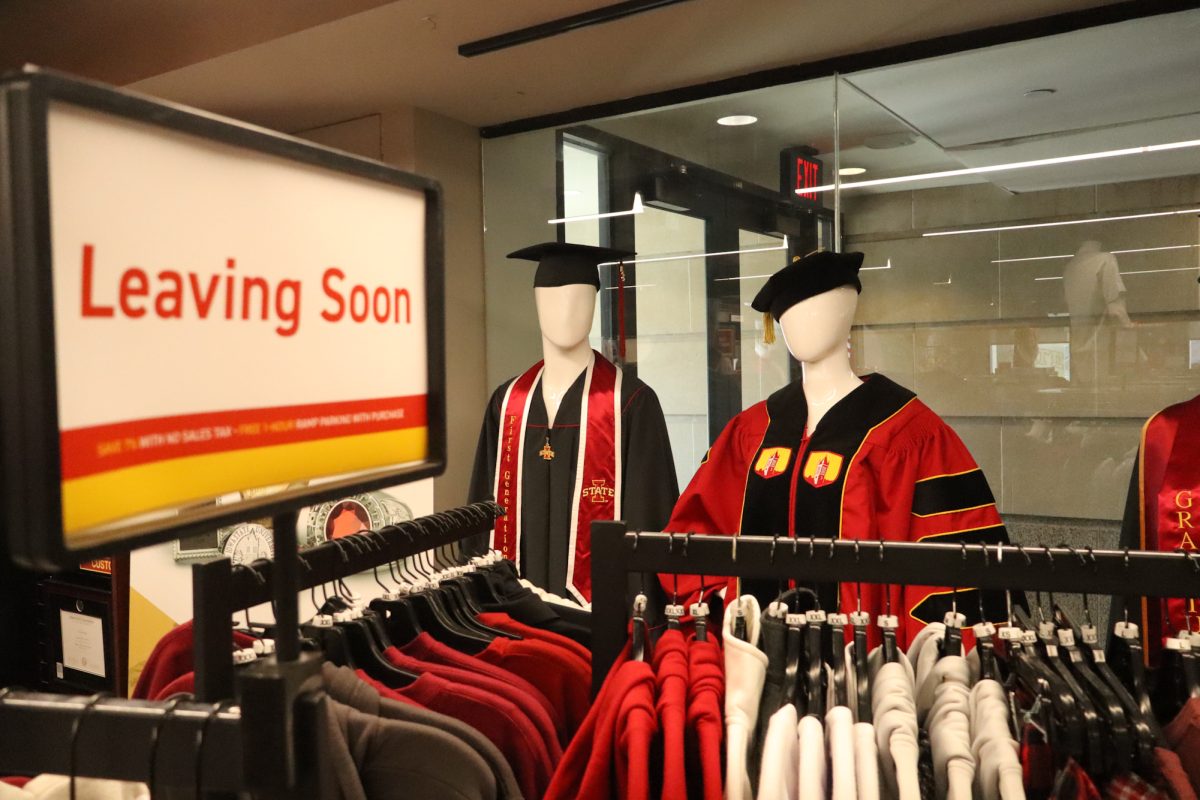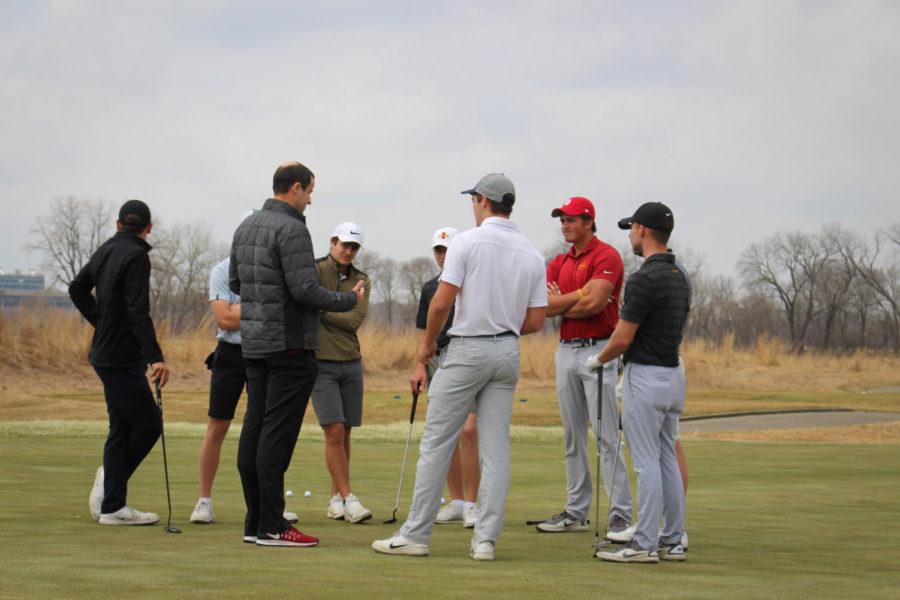Union Pacific CEO vouches for NAFTA and activism
Lance Fritz, CEO of Union Pacific Railroad, speaks to a group of students and staff April 18 in the Gerdin Business Building. Fritz spoke about a wide range of topics in his presentation titled: “Connecting People, Creating a Better Future,” including his previous career at General Electric, common management mistakes (multi-tasking, lack of understanding, accountability, and work/life integration), the history of rail in America, and how Union Pacific works in the international trade market.
April 18, 2017
Half of all acres in Iowa are planted for international export and trade, Lance Fritz, chairman, president and CEO for Union Pacific, said.
Fritz shared his thoughts on the importance of international trade with about 50 lecture attendees, students, staff and faculty Tuesday morning as part of the College of Business CEO speaker series.
“This lecture series is meant to give our students the chance to learn from today’s business leaders,” said David Spalding, Raisbeck Endowed Dean of the College of Business and professor of finance.
The North American Free Trade Agreement, an international trade agreement among the United States, Canada and Mexico, is being reconsidered by the federal government.
“It’s a very polarizing concept in today’s world,” Fritz said.
Since the creation of NAFTA in 1994, trade among the three countries has quadrupled, allowing for economic growth, Fritz said.
“NAFTA’s not a bad thing,” Fritz said. “NAFTA is a very, very good thing.”
Union Pacific controls the railroad franchise in 23 states, employing about 44,000 people and owning 32,000 miles of railroad tracks across the country. Fritz said 40 percent of all Union Pacific business is in international trade.
About 108 Iowa State alumni are employed with Union Pacific, and many projects and events at Iowa State are sponsored by Union Pacific.
Fritz said trade increases this job availability and investment opportunities, including for Iowa State students.
Fritz said that it is the duty of all citizens to stand up and drive the dialogue for concerning political issues.
“We, as citizens, are a little apathetic about politics, and we can’t be,” Fritz said. “We have to be more active.”
Fritz said the media also plays a role in driving a predetermined message and that people can’t believe everything they read.
Fritz advised the audience to be wary of those things but also to bring forth solutions and not be afraid of taking on difficult tasks.
Quoting Abraham Lincoln, Fritz said, “If you want to predict the future, the best way is to create the future.”







